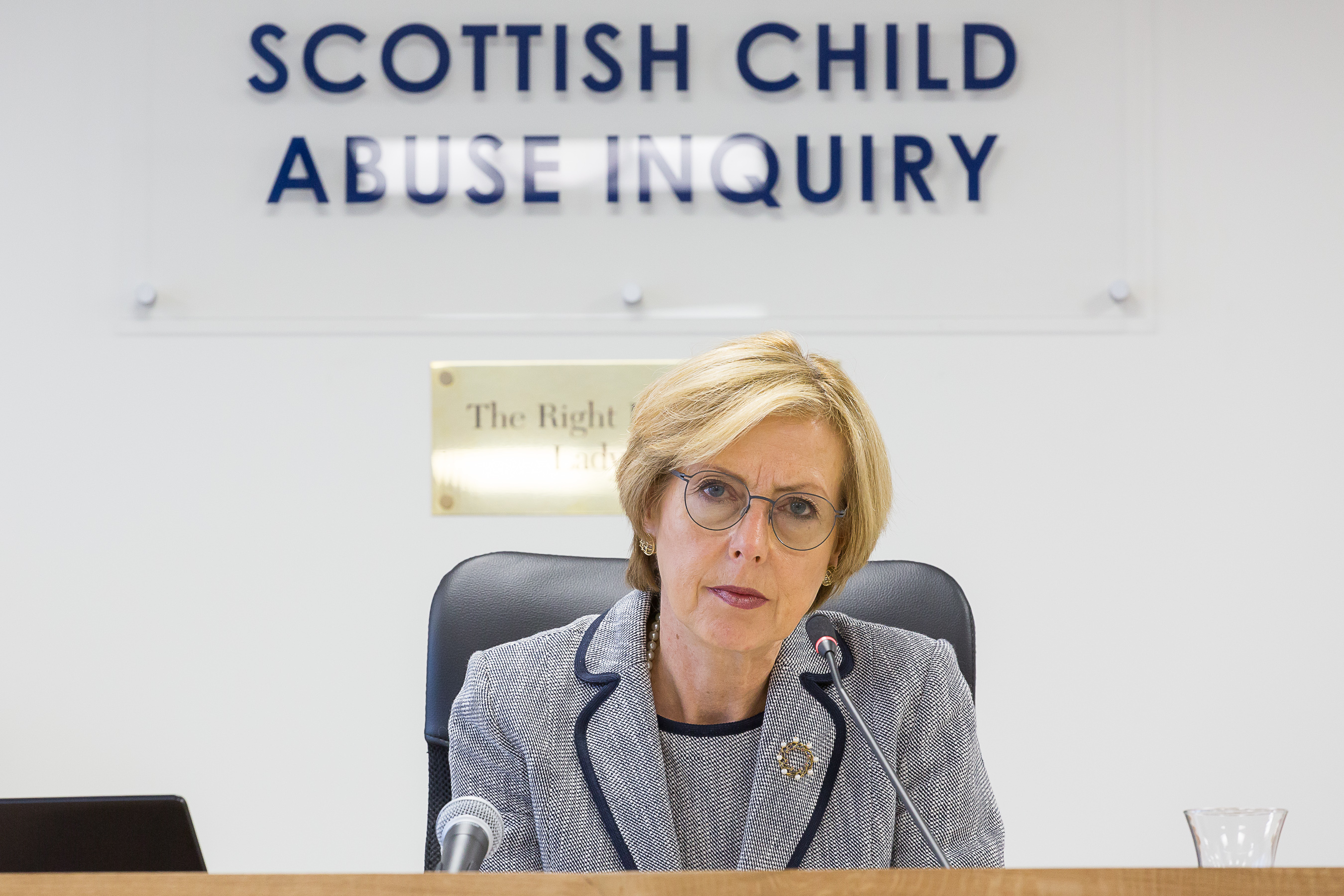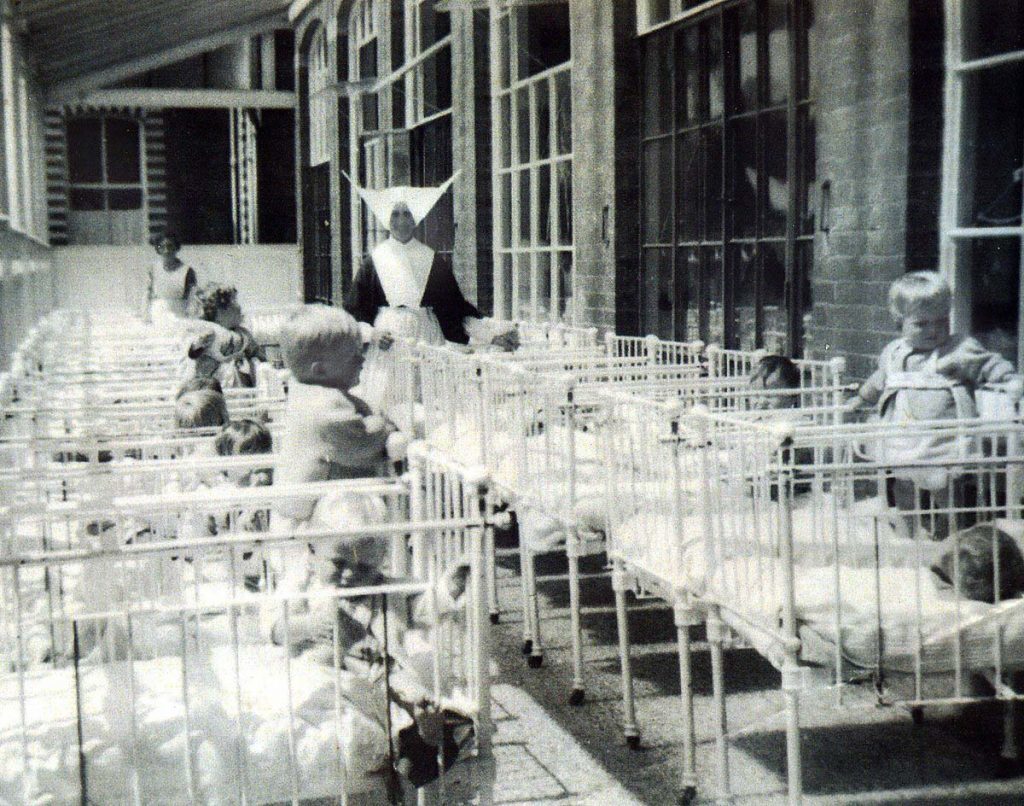
THEY had waited a long time to be heard.
But in this nondescript office block, as commuters rushed by outside, they would speak at last.
And, finally, after all those years, these adults, who were once children in Scotland’s care homes, would tell their stories. Stories of neglect, of cruelty, of abuse and of murder.
The Scottish Child Abuse Inquiry started its second phase in Edinburgh last week as judge Lady Smith, pictured, turned her attention to Smyllum Park children’s home in Lanarkshire, the orphanage where, as we revealed in September, up to 400 children are buried in an unmarked grave.
The hearings were harrowing for those who gave evidence and those who heard it. It was often heart-breaking.
Some in the seats open to the public wept as former child residents – most are now pensioners – described growing up in Smyllum.
After 153 years and three weeks, nuns finally agree to remember lost children of Smyllum
The witnesses wept too as their stories unfolded.
The children’s home – ran by a Catholic order of nuns called the Daughters of Charity of St Vincent De Paul from 1864 to 1981 – is one of more than 60 institutes being looked at by the inquiry.
But it’s the first to come under scrutiny by the inquiry which is examining cases of abuse from the 1930s onwards.
Until Christmas, dozens of former residents will give evidence and statements alongside former residents of another home called Bellvue Home in Rutherglen, which was run by the same order of nuns.
Previously, the inquiry heard apologies from groups who ran some of the institutes who said they “deplored that physical sexual abuses could occur” in the homes they ran.
Now, it was time to drag those allegations into the light.
In the long, white-walled hearing room of Rosebury House, near Haymarket Station in the city’s west end, the first witnesses came forward to speak openly about their lives at Smyllum Park.
For some it was the first time they had ever spoken of their ordeal there.
In June, the head of the Daughters of Charity, Sister Ellen Flynn, described allegations of abuse at Smyllum Park as a “mystery” and said there was “no evidence” of abuse happening there.
Last week, her words rang hollow as witness after witness remembered their lives in the orphanage.
Within minutes of the inquiry restarting, the order’s lawyer, Gregor Rolfe, admitted for the first time that a worker at Smyllum Park in the mid-70s may have sexually abused two brothers.
He described how earlier this year, a member of staff came forward to tell how she told a nun in the 1970s that Brian Dailey, a former care worker jailed in June for the predatory abuse of children in residential homes, had abused two Smyllum Park boys on a holiday.
But the claims were never followed up.
The subsequent testimonies were just as unsettling.
Former residents – some of whom only came forward after The Sunday Post published our reports into Smyllum Park earlier this year – soon began.
Wiping away tears while delivering his testimony, David – not his real name – was the first to speak about the suffering he endured at Smyllum Park.
The “rage” he’d been left with would scar his adult life and relationships, he told Lady Smith.
By the age of just 10, David said he had suffered both physical and sexual abuse at the hands of nuns.
But he’d also seen much worse happen to those close to him.
Visibly upset, he recalled how he’d helplessly watched six-year-old best friend Sammy Carr suffer a frenzied kicking by a nun.
Tragic Sammy died days later, David claimed.
A police investigation earlier this year into David’s allegations confirmed that Carr had indeed died of a brain haemorrhage despite the family saying they were given a different account by the nuns at the time.
However, authorities have found no evidence in the post-mortem to suggest it was linked to an assault.
Instead, Carr may have had a fungal brain infection, potentially brought on by malnutrition.
It wasn’t the only death the inquiry would touch on last week. On Wednesday, another former resident, going by the name Chief, told how he heard a four-year-old boy called David repeatedly slapped by a nun behind a curtain before he died.
The 68-year-old said he heard David being beaten “quite badly”.
“We heard slap, slap, slap, and ‘shut up’, ‘shut up’. It was one of the nuns,” he told the inquiry.
“The next day the boy didn’t show up. We all cheered because we thought he had got a family and he was away.”
But there was no happy ending for the young boy. David, whose full name was David Carberry, died in July 1955 aged just four.
In September, our joint investigation with the BBC revealed how he was one of more than 400 deaths linked to the home – a death rate at odds with national averages.
His death certificate says he died from bronchial pneumonia.
But like Sammy Carr, his family have told the Sunday Post how nuns offered a different explanation for his death at the time.
Speaking from Australia last week, David’s older brother Leon, a former police officer and Smyllum Park resident, said he felt “upset, anger and rage” at hearing fresh allegations about physical abuse suffered by David before his death.
For Chief – who says he himself suffered nearly a decade of physical abuse at the home – our revelations that David Carberry had passed away was just as shocking as the beatings he says he suffered at the hands of the nuns decades ago.
“It wasn’t until I saw The Sunday Post that I found out he died, or he was killed,” he told the inquiry.
For some the wait to appear proved too long. Frank Docherty and Jim Kane – firm friends who passed away earlier this year within weeks of each other – had campaigned for an inquiry to hear what had happened to them at Smyllum Park for years.
Last week, they were finally vindicated. Their posthumous statements – salted with their trademark language and humour – took an hour each to read aloud. In death, they finally achieved what they had fought for in life.
Frank’s widow Janet, who has taken over her husband’s campaigning role with the charity In Care Abuse Survivors (INCAS), looked on determinedly from the public gallery as the inquiry heard from Frank from beyond the grave.
Evidence is expected to continue to be heard about Smyllum Park into 2018 and after that it will move on to other care institutes.
Lady Smith will not report on her findings until October 2019 at the earliest. For the former residents of Scottish care homes it can’t come soon enough.
And it’s not for the compensation one former nun cruelly told the inquiry earlier this year she suspected they were after.
Rather it is for redress.
As prominent QC John Scott – acting for INCAS – told the inquiry on Tuesday, “This inquiry has seen how much more there is to survivors than any legitimate demand for money.
“Prevention, acknowledgment, apology and accountability are what drives them.”

Enjoy the convenience of having The Sunday Post delivered as a digital ePaper straight to your smartphone, tablet or computer.
Subscribe for only £5.49 a month and enjoy all the benefits of the printed paper as a digital replica.
Subscribe